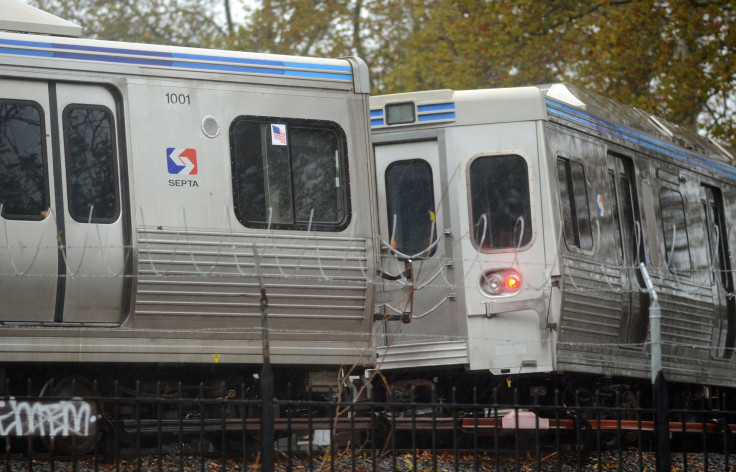How 430 People Shut Down Philadelphia Rail Service And Why President Obama Got Involved

A one-day strike that shut down commuter rail service in Philadelphia and its surrounding suburbs over the weekend ended after President Barack Obama invoked an 88-year-old presidential power to end the shutdown, providing relief to tens of thousands of people who depended on the service to get to and from work on Monday.
Train operators and electricians have been in a multiyear dispute over wages and pensions that came to a head when the Southeastern Pennsylvania Transportation Authority, or Septa, said it would unilaterally draw up a new contract that didn't meet union demands.
Despite assurances to commuters on Sunday from Septa officials that services would be back to normal, many of the 126,000 commuters that use the system on a typical workday were planning for the worst.
“I’d have to take the 1 or 3 then catch the route 100 and the L,” Angela Williams, a resident of Ardmore, Pennsylvania, told a local Philadelphia NBC affiliate. The complicated plan to get to work by subway and bus was what she had prepared to take had the strike continued.
Members of the Brotherhood of Locomotive Engineers and Trainmen (BLET) and the International Brotherhood of Electrical Workers (IBEW) began a strike at 12:01 a.m. Saturday because of stalled negotiations over wages and pension contributions. The unions have been working without a new contract since 2009. The strike affected all of the 13 rail lines connecting the state’s largest city to surrounding cities and towns. It’s also an important route between Pennsylvania and Trenton, New Jersey.
The strike lasted less than a day after Republican Gov. Tom Corbett asked the president on Saturday to invoke his authority under the rarely used 1926 Railway Labor Act. The law creates a federal mediation board that must provide its recommendations by June 23 for resolving the dispute between the two unions and Septa, and it forces workers to end their strike. If not, Septa could legally replace workers who refuse to follow the law.
Obama’s move is a softer measure than the one invoked by President Ronald Reagan in the early 1980s, when he fired more than 11,000 air traffic controllers under a provision of the 1947 Taft-Hartley Act that allows strikes to be declared illegal in economically sensitive sectors. The executive power Obama invoked also allows him to delay a strike or any contract that isn’t agreed-upon by both sides for up to 240 days, which takes another strike off the table until late January.
"The people of Philadelphia and the surrounding region expect and deserve a safe and efficient rail system to get them to work, medical appointments, school and recreation,” the governor said in a public statement.
BLET President Stephan Bruno responded with the following statement: “Responsibility for the shutdown lies squarely with Septa and with Governor Corbett. The BLET and IBEW agreed over six weeks ago to binding arbitration on the two issues separating the parties."
The electrical workers are demanding a 14.5 percent pay raise over the next three years. Before the president’s intervention, Septa was about to impose a unilateral 11.5 percent increase over the same period of time starting Sunday. The conductors were poised to receive an 8.5 percent increase by July 6.
Septa says that its electrical workers earn about $55,120 a year, excluding overtime. Conductors take in about $95,290 a year. The two sides are also in a multiyear dispute over pension obligations.
Septa’s 2013 annual report (pdf) shows $1.1 billion in operating losses and $842.9 million in salaries, wages and fringe benefits to its current and former employees. Septa employed 9,233 workers last year, including all of its operations, including bus drivers, who weren’t part of the strike.
© Copyright IBTimes 2024. All rights reserved.




















